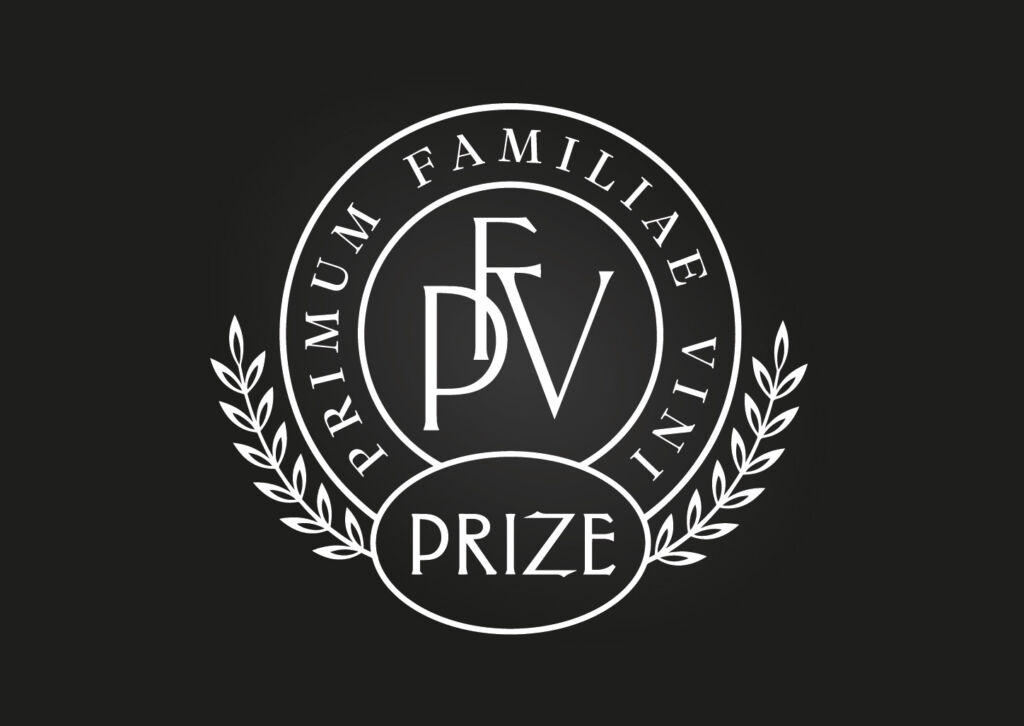
Five outstanding businesses have been selected from amongst candidates the world over for this third edition of the PFV #FamilyIsSustainability Prize. One of them will be awarded the €100,000 prize next spring, following on from the previous winners, the fine natural fabric manufacturers Brun de Vian-Tiran and the Belgian luthiers Maison Bernard.
From Japan, Italy, and the United States, these five exceptional family firms stand out for the exemplary way they have managed the transmission of their businesses down the generations, their commitment to excellence, and their sense of innovation, which has enabled them to endure over time.
The PFV Shortlist for 2024
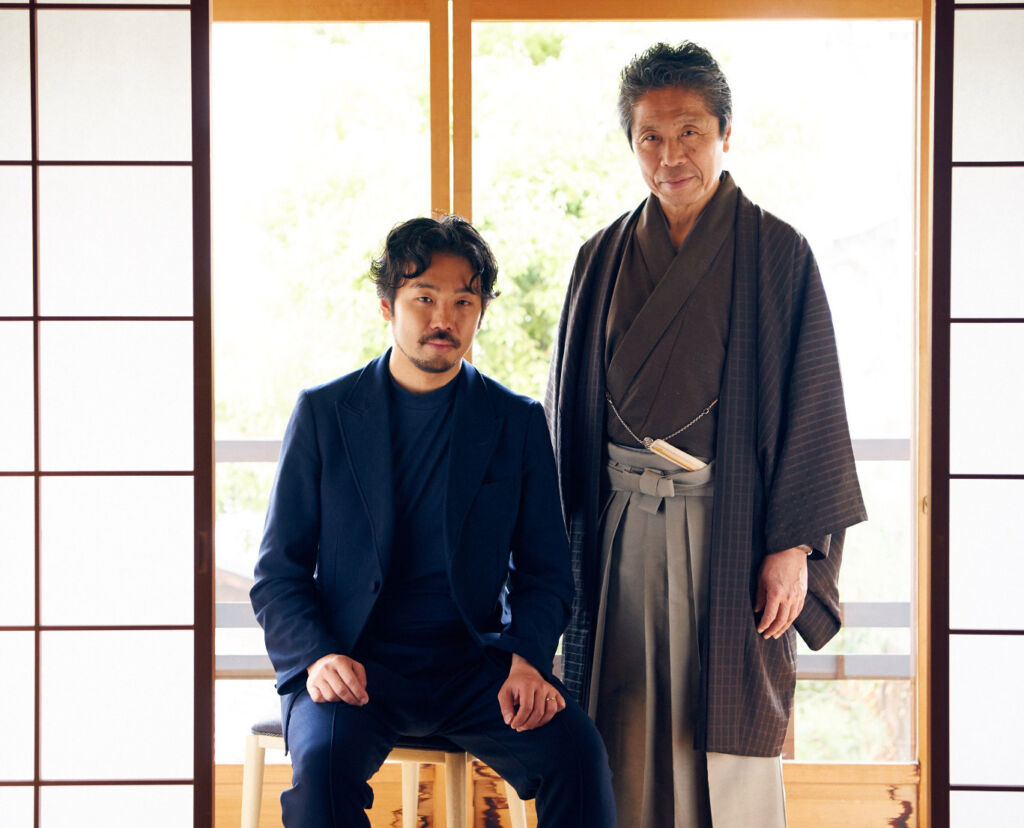
HOSOO Co., Ltd – Japan
Operating since 1688 – 12th Generation
Kimono Textile Company
HOSOO was founded in the “Nishijin” area in the North of Kyoto City as a weaver purveying to prominent temples. Since then, over 12 generations, the family business of Nishijin-ori weaving, making one of Japan’s representative textiles, has been passed down from generation to generation.
Nishijin textile, Kyoto’s pre-dyed yarn textile, has been nurtured since 1200 years ago with the support of imperial nobles, the samurai class, and wealthy merchants. Today,
HOSOO combines traditional Nishijin textile techniques for Obi and kimono that it has inherited with innovative techniques and a timeless design sensibility to create one-of-a-kind textiles and offer them to the luxury markets in Japan and abroad.
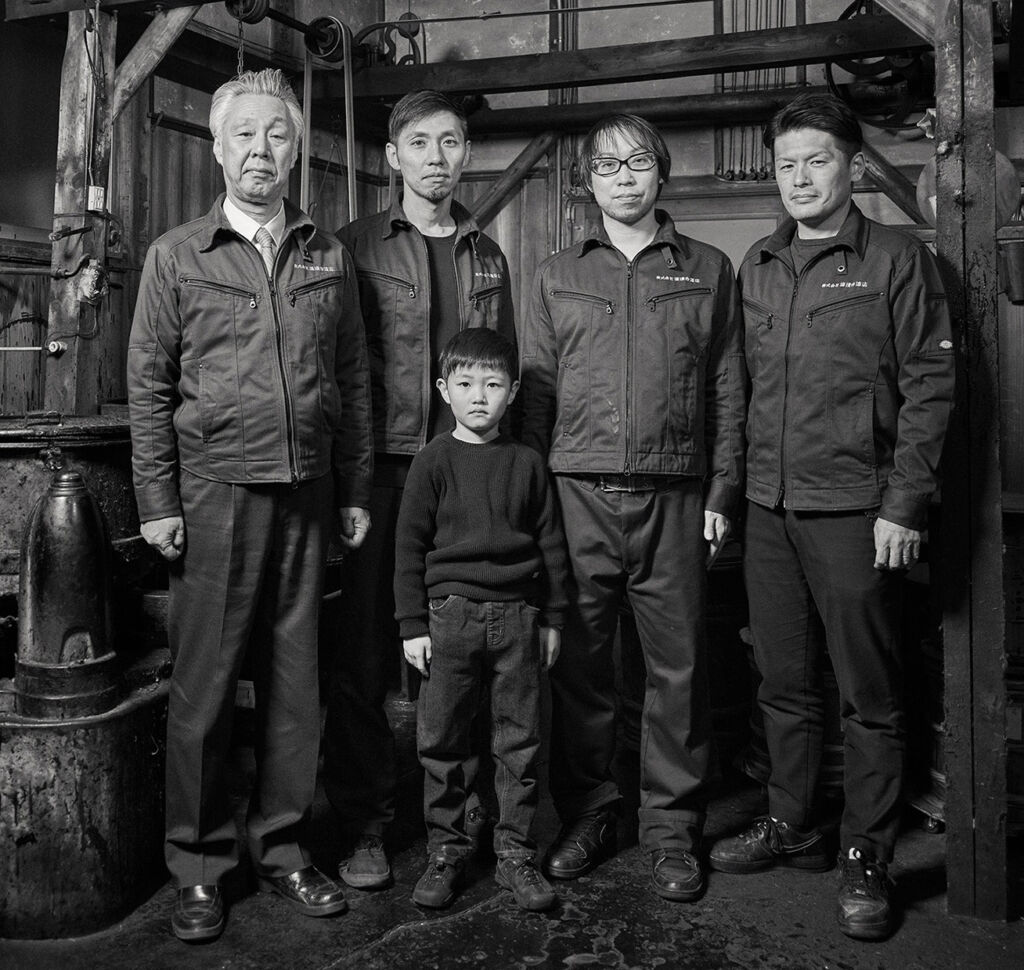
Tsutsumi Asakichi Urushi – Japan
Operating since 1909 – 4th Generation
Japanese Natural Lacquer
A spokesperson for the business said, “Our family business specialises in refining Toxicodendron vernicifluum resin into lacquer urushi. This traditional craft involves coating tableware, artwork, religious artefacts, and architectural structures.
“Despite a 90% decline in lacquer demand over the last 40 years in Japan, our family has thrived through expertise, high-quality lacquer, and a pivotal role in traditional lacquer making. We’ve adapted to challenges by developing UV-resistant lacquer, a hallmark of our brand.
“Refining 70% of Japanese lacquer, some used in restoring national treasures like Nikko Toshogu Shrine, our focus is on environmentally sustainable, traditional lacquer.
“As a family-owned company, we swiftly adapt to the growing global interest in sustainable, long-lasting, and handmade products.”
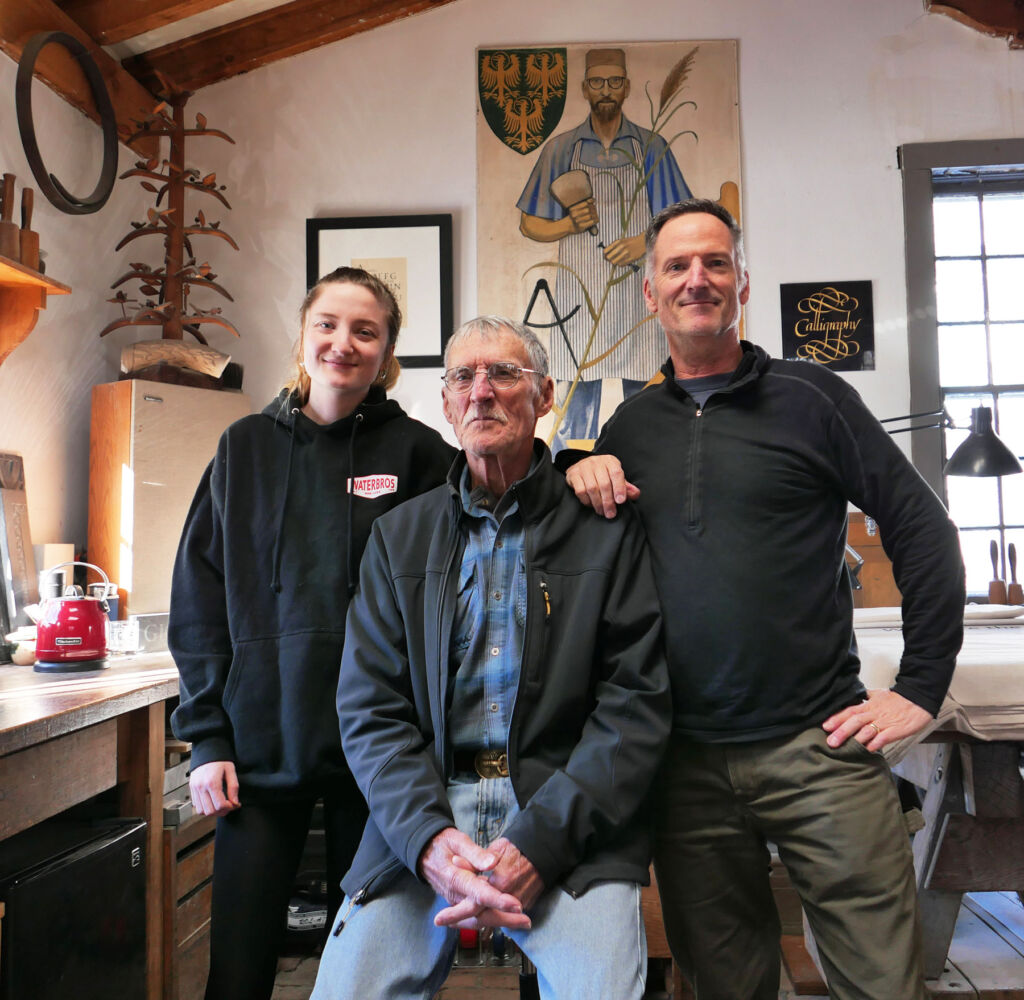
John Stevens Shop – USA
Operating Since 1705 – 3rd Generation
Stone Carving
Founded by an English mason named John Stevens and specialising in the design and carving of inscriptions in stone for 315 years. The shop’s architectural and memorial lettering is generated by hand with a broad-edged brush in the manner of the great Roman inscriptions. Refined and developed for centuries, this standard is based on the practised work of the hand and eye, directed by a keen grasp of form and aesthetics.
Letters are carved by hand in a broad range of materials with hammers, mallets and chisels. Through these methods, graphic and calligraphic designs can be given true sculptural form. The application of computer science is also used in its work in the design and execution of custom graphics and typefaces required by contemporary production.
“Our business continues to work with clients whose association with our company is generations old, as well as new clients who propose interesting and innovative applications for our age-old craft.”
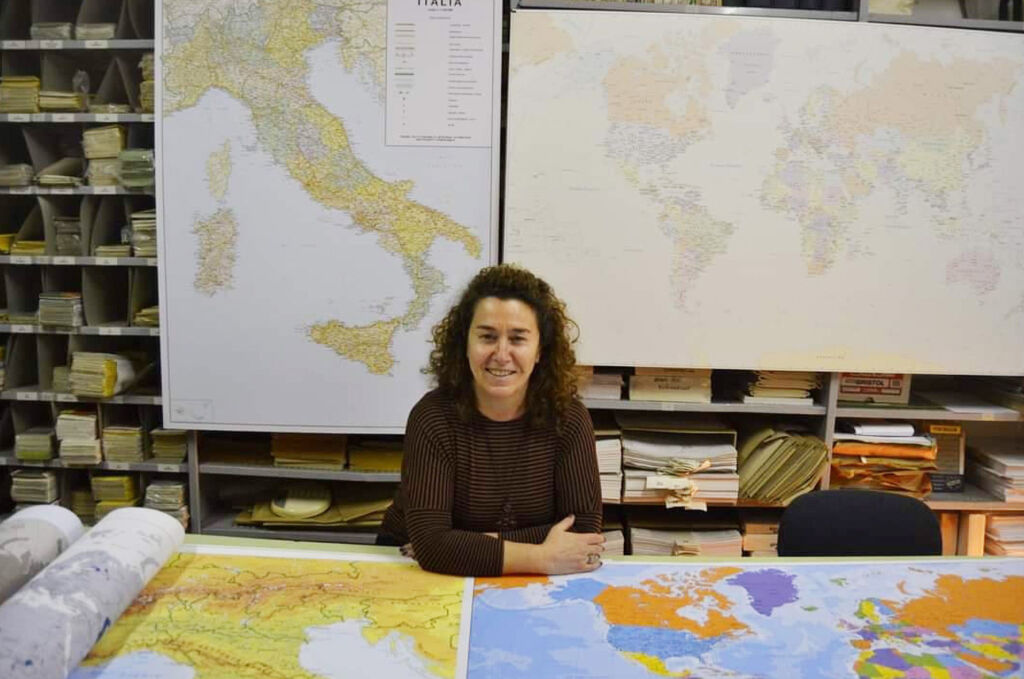
Cartografica Visceglia – Italy
Operating since 1924 – 4th Gereration
Cartogarpher
Cartografica Visceglia was founded in Rome by Vincenzo Visceglia, who turned a passion into a family business. “Great love for terrestrial physics and therefore for geographical maps” is what he wrote in 1942 to motivate the launch of the company.
It is a family business driven by a passion for geographical maps. Initially traditional, the company transitioned to computerised cartography in the 1990s. Today, it produces maps for diverse clients, including the film industry, and creates furnishing components.
Recognised for its contributions, a street in Rome was dedicated to the founder in 1989, and in 2016, the Rome Municipality acknowledged Cartografica Visceglia as a “Historical Activity of Excellence”. The Italian Culture Ministry declared the Visceglia Archive of “particularly important historical interest” in 2015.
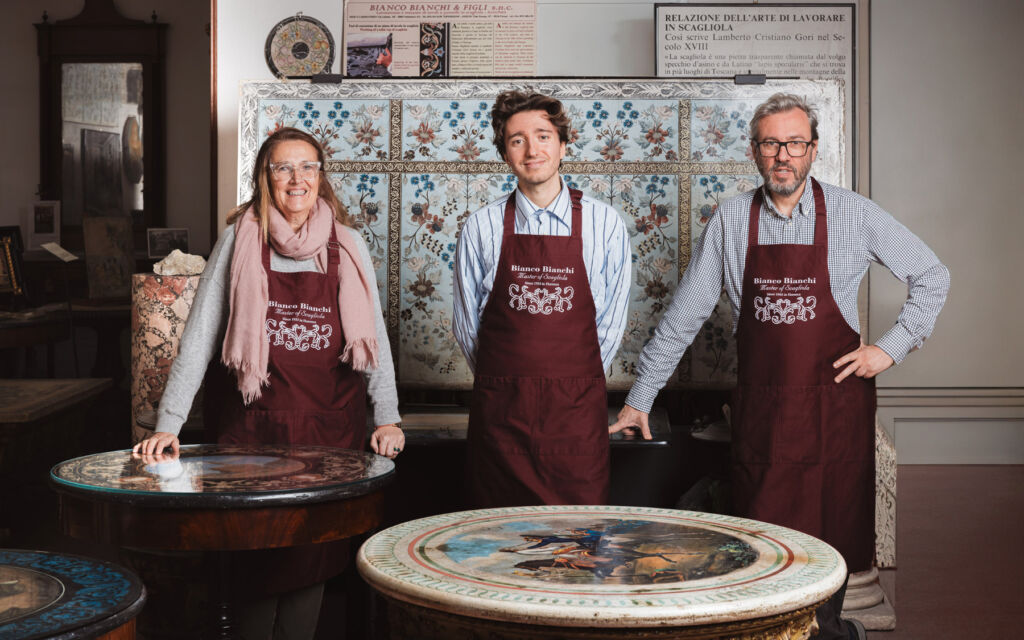
Bianco Bianchi – Italy
Operating since 1953 – 3rd Generation
Master of Scagliola
The company began when Bianco Bianchi, a government employee and artist, dedicated ten years of his free time to studying the secrets of an artistic technique that had been lost over time: scagliola (the art of making inlays with a special mix of coloured pigments, natural glues and selenite powder).
Bianco left his job and devoted himself to producing new works of his own and collecting and restoring period pieces (the Bianco Bianchi collection is the most important in existence).
His children, who inherited his passion, continue, with the help of a few skilled artisans, to produce masterpieces with the same antique technique. They work with decorators and architects, creating interior decorations and a wide range of scagliola to insert in antique and modern interior design.
Unique pieces such as tables, panels and gift items that end up in some of the most beautiful houses in the world.
About the €100,000 PFV #FAMILYISSUSTAINABILITY Prize
Primum Familiae Vini, an association of twelve prestigious wine-producing families, defends and supports the family business as a sustainable and viable economic model that looks to the future. The families formed the association some 30 years ago to share and discuss the issues and challenges they have in common.
In 2020, they decided to create the PFV #FamilyIsSustainability Prize in support of outstanding family businesses with shared values and a commitment to excellence, whatever their field of activity. Now in its third edition, the prize was awarded in its first year to Maison Bernard, the oldest luthiers in Europe, and in 2022 to Brun de Vian-Tiran, a French manufacturer of fine woollen fabrics.
Véronique Drouhin, from Maison Joseph Drouhin, winemakers in Burgundy since 1880 and President of PFV, said, “Since we created the prize in 2020, we have been bowled over by the amazing businesses that send us their applications. Meeting the winners is far more than a prizegiving ceremony; it’s a rewarding and inspiring experience for all the members of PFV.
“Once again this year, the independent family businesses from whom we received applications are all involved in magnificent projects. We selected five who particularly stood out for having successfully guided their family businesses through multiple generations, maintaining positive dynamics and people-centred values whilst targeting uncompromising excellence in their sphere of activity.
“These values are dear to us at PFV, and we are committed to encouraging them.”
![]()



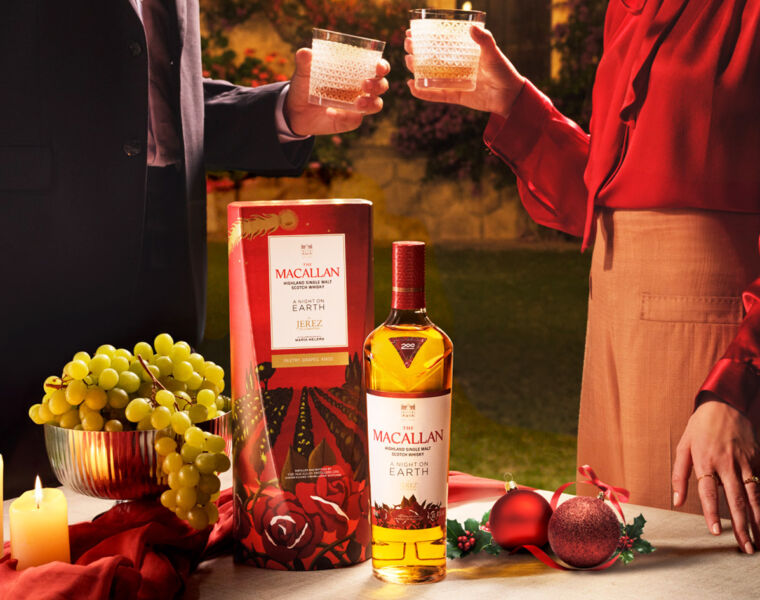
You must be logged in to post a comment.